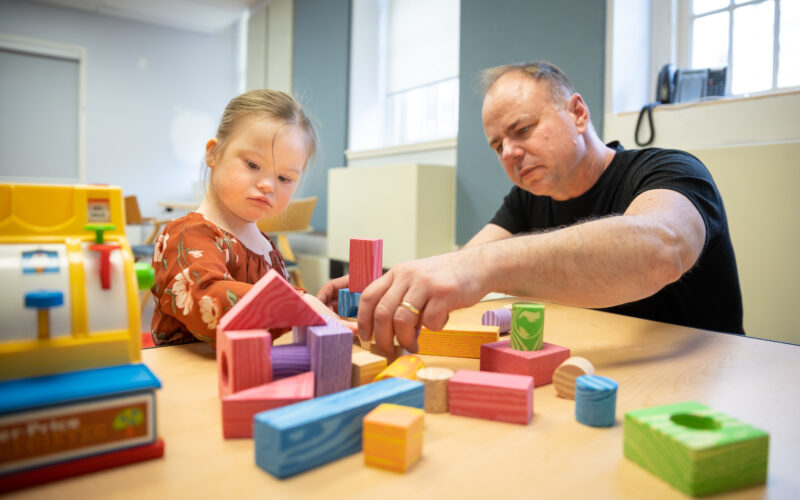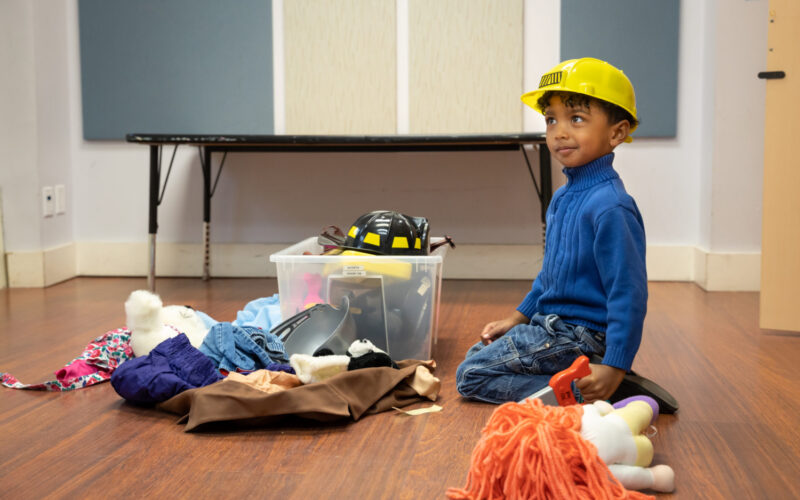Children with autism spectrum disorder (ASD) have a wide range of strengths and challenges. These suggestions may help with the day to day management of your child.
Children with ASD demonstrate communication skills ranging from no verbal language to advanced vocabulary. Many have difficulty understanding verbal instructions and may struggle to interpret body language. Visuals often help children with ASD understand and remember information
Tips:
- Use gestures with your spoken language
- Use clear, simple language
- Explain what expressions and metaphors mean
- Provide time for your child to process information, waiting at least 5 seconds before repeating a question
- Use visuals to supplement verbal instructions
Children with ASD may show behaviours that are different from other children. Many are rigid and like to do things the same way all the time. They may have difficulty with change and struggle with transitions from one activity to another. They may not be motivated by things like social praise. Many show intense interest in particular toys, objects or subjects.
Tips:
- Try to prevent behaviour problems before they occur by looking for common challengess and changing or avoiding them
- Use signs or pictures to remind your child of certain rules and expectations
- Find opportunities to give choices. This could be as simple as “Do you want the red cup or the blue cup?”
- Focus on rewarding positive behaviour instead of telling your child what you don’t want them to do
- Try to keep routines at home predictable and consistent
- Give your child lots of warning about changes in routine. Using visuals/pictures helps children understand and remember (pictures of where they are going, calendar that shows trips or special events)
Many children with ASD struggle with managing emotion and can become anxious or have strong reactions. Children with ASD are also more likely to be over or under sensitive to sensory input including sounds, lights, smells, textures and movement.
Tips:
- Identify early signs of your child’s anxiety (e.g., hand flapping, increased movement, faster talking) and act early
- Provide a choice, direct him or her to another activity or provide a distraction
- Keep calm yourself – talk quietly and slowly and give your child more space
- Reduce environmental stimulation (noise, people, bright lights) when you see your child getting overwhelmed.
- Provide sensory activities (e.g., playing with soapy water in the sink, squeezing playdough, jumping on a mini trampoline) throughout the day if your child and is calmed by that sensory input
- Make sure your child gets regular movement breaks throughout the day
- Teach your child to calm down using deep breathing or something else that works. You may need to remind him/her when to use that strategy.
- Behaviour strategies, tools & tips for young child
- General information, services & resources related to ASD
- Free printable visuals and other resources
- Free printable visuals and other resources
- Family-friendly resources related to developmental disabilities
- Behaviour tools, free resources and other products related to ASD



Children with ASD often have difficulty making friends and understanding others’ feelings and perspectives. Some may demonstrate limited interest while others may seek out friendships but lack the skills to play and interact. Many have difficulty with managing conflict and can be at risk of isolation or bullying.
Tips: